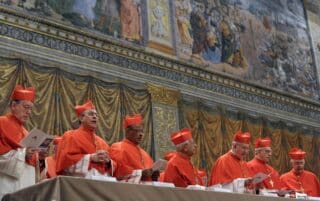The world Bank and the Philippine government are supposedly working on a master plan that will make Metro Manila flood-proof or at least make it safer for residents in the event of prolonged rains and floods. It is now three years and seven months after Tropical Storm “Ondoy” devastated Rizal, Laguna and Metropolitan Manila, especially Marikina City. It is hoped that the master plan will be translated into a reality. Meanwhile, at the onset of the rainy and typhoon season every year, we who have gone through the terrible ordeal of Ondoy relive the terrible experiences that have traumatized us. Personally, it was worse than going through three and a half years of the Japanese occupation.
On the crime scene, despite claims by the Philippine National Police that the crime rate has gone down, the frequency and severity of crimes committed affect our daily lives. The question foremost in our minds is: Do we have a government that carries on a sustained effort to prevent the commission of crimes? Preemptive action on the part of law enforcement agencies should be given more emphasis.
What we see today is: Police presence is utterly lacking. The PNP hierarchy says we need more policemen. By all means, recruit them fast, but ensure that the selection is thorough and rigid, without politics or “pakikisama” involved. Also, are there loopholes in our criminal justice system, which many of us are aware of but we fear exposing because by doing so, the act is tantamount to “rocking the boat”?
The present administration, in its crusade to perpetuate the “daang matuwid” should have no qualms about challenging entrenched quarters whose actions are highly suspect. President Aquino has four more years to go in his 6-year term, enough time to “rock the boat” and institute genuine reforms.
The midterm electoral exercise is just a year away. This early we hear politicians talk about recruitments, realignments and coalitions, all geared toward the 2013 election, which everybody knows is the opening round for the 2016 presidential election. Shared experiences and alliances will certainly give way to dissociations because of personal agendas. It will not be unusual for old hurts that have been glossed over in the past to be brought back to the surface—a human recourse for self-aggrandizement. This will be beneficial to the electorate in arriving at the right choice. Has-beens and those who have been repudiated, buoyed by adulation and bloated self-esteem, will be very vocal—a way to surmount lingering memories in the public’s mind of a shady past. It is unfortunate that good materials for public office are shunted aside in the selection process because political dynasties have taken over despite the mediocrity of their member-aspirants. This is a defect in our political system which the 1987 Constitution foresaw but left to Congress to correct. Of course, Congress did nothing and political dynasties proliferated!
—APOLONIO G. RAMOS,
42 Mindanao St.,
Marikina City


